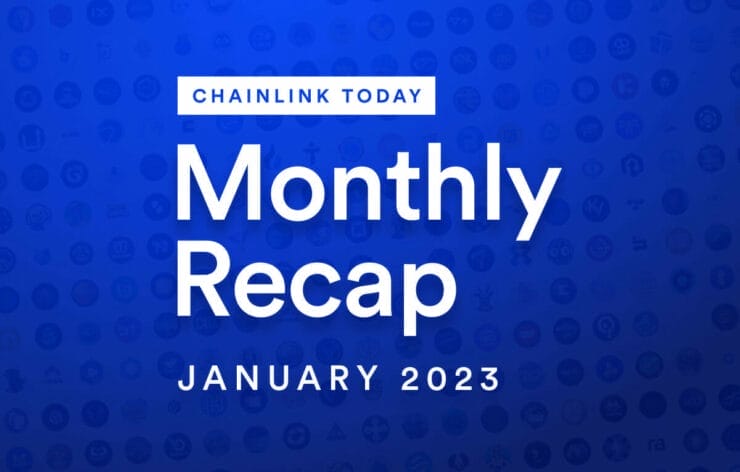January was a busy month for projects in the Chainlink ecosystem, especially those participating in Chainlink BUILD. A key Economics 2.0 initiative, the BUILD program is designed to enhance the Chainlink Network’s cryptoeconomic security by developing promising early-stage startups that are building critical use cases with Chainlink’s oracle technology.
One of the first ten projects to join BUILD last November is Cask, a decentralized protocol utilizing Chainlink services to develop noncustodial methods for funding recurring web3 transactions. Ringing in the new year, Cask launched Chainlink Top-Ups, which supports projects using Chainlink VRF and Automation by automatically replenishing their token balance and depositing payment for Chainlink services.
January additions to BUILD include Kwil, a protocol for designing, building, and deploying permissionless relational databases. Kwil allows web3 applications like Truflation, a custom inflation index delivered on-chain via Chainlink, to cost-effectively scale by storing large amounts of structured data off-chain while maintaining end-to-end decentralization.
In an interview with Chainlink Today, Kwil’s founder, Brennan Lamey, said he expects Kwil will augment Chainlink’s foundational infrastructure to broaden web3’s reach by allowing developers to more seamlessly leverage relational databases and social graphs with composability that rivals web2.
“While web3 used to be almost synonymous with DeFi, we have now seen the industry grow into several new sectors,” he said. “Decentralized social, science, and gaming are only a few of the many verticals in which Kwil and Chainlink will play a pivotal role in advancing and bringing to market.”
January also showcased significant Chainlink-powered innovations in on-chain carbon credits.
To satisfy the need for more sophisticated on-chain carbon pricing models, OpenEarth Foundation announced that it will launch a Chainlink carbon pricing oracle in collaboration with UC Berkeley. By delivering advanced pricing models that account for the social cost of carbon (SCC) to top blockchains, the Chainlink carbon pricing oracle could help build more resilient carbon markets that better respond to social, economic, and environmental fluctuations.
There is also growing demand for insurance to protect forest carbon credit holders from the threat of wildfires and other natural disasters. In order to power the world’s first on-chain carbon offsets insurance product, decentralized insurance protocol Etherisc announced it is integrating Chainlink on Polygon to access Floodlight’s geospatial weather data, which will trigger smart contracts to pay out the cost of replacing lost offsets.
Looking ahead, Chainlink co-founder Sergey Nazarov published a blog post sharing his vision for Chainlink’s growth in 2023. Initiatives include expanding the Chainlink Network’s monetization model, enhancing its network payment model, broadening the scope of Chainlink’s off-chain computation services, developing new low-latency oracle solutions for the DeFi derivatives market, and advancing Chainlink’s utility as a fundamental abstraction layer for the blockchain economy via Cross-Chain Interoperability Protocol (CCIP).
Nazarov outlined a 2023 phased launch for CCIP and thanked the Chainlink community for its continued support in building a world powered by cryptographic truth.
“I’m deeply grateful to everyone in our community who understands what we are seeking to achieve by enabling a new era of cryptographic truth,” Nazarov wrote. “Thank you for productively working with us to create this significant change in how the world will work.”
Learn more about Chainlink BUILD and apply here.
View the entire Chainlink ecosystem in one place.



